Coping Strategies in Islam: Insights from the Qur’an and Sunnah
In Islamic tradition, guidance for coping with hardship—a universal human experience—derives from two primary sources: the Qur’an and the Sunnah. As the foundational pillars of Islamic belief, the divine revelation and the authenticated practice of the Prophet Muhammad ﷺ offer Muslims a multifaceted lens through which to understand and mitigate suffering. This essay explores how these sources provide social, psychological, and religious resources that have transcended cultures and time, establishing systematic coping mechanisms that are theologically congruent with Islamic principles.
Theological Foundations: Divine Decree, Trust, and Patience
The concept of divine decree (Qadar) is central to Islamic coping mechanisms. The Qur’an states: "No calamity befalls except by Allah’s permission" (Qur’an 64:11), offering a framework that situates individual suffering within divine wisdom and purpose. This theological view does not negate human responsibility or agency. Rather than promoting fatalism, it encourages believers to engage with life’s challenges while recognising that their occurrence lies within Allah’s knowledge.
Tawakkul (trust in Allah) is closely tied to Qadar. The Qur’an affirms: "And whoever puts their trust in Allah, then He is sufficient for them" (Qur’an 65:3). Together, Qadar and Tawakkul help Muslims manage distress, enabling both spiritual surrender and practical response. The Prophet Muhammad ﷺ exemplified this trust during the most difficult periods of persecution in Makkah and the migration to Madinah. Despite relying entirely on Allah, he took strategic measures and acted with caution, offering a practical model for believers confronting adversity.
The Qur’an also designates patience (ṣabr) as a key tool in facing hardship: "O you who have believed, seek help through patience and prayer. Indeed, Allah is with the patient" (Qur’an 2:153). This concept encompasses perseverance, self-restraint, and emotional strength. The Prophet ﷺ elevated the spiritual value of patience, saying: "No fatigue, disease, sorrow, sadness, hurt or distress befalls a Muslim—even if it were the prick of a thorn—but that Allah expiates some of his sins for it" (Ṣaḥīḥ al-Bukhārī). Through both Qur’anic text and prophetic sayings, adversity is reframed not as merely harmful, but as spiritually transformative.
Qur'anic Narratives as Psychological Resources
The Qur’an presents detailed accounts of prophets who endured extraordinary trials, offering these narratives as sources of consolation and guidance. These stories serve as psychological models for believers facing similar forms of adversity. For instance, the Qur’an describes the response of Prophet Ayyub (Job) عليه السلام, who suffered severe illness and loss: "Indeed, We found him patient. What an excellent servant! Indeed, he was one who constantly turned to Allah" (Qur’an 38:44).
Similarly, the life of Prophet Yusuf (Joseph) عليه السلام—marked by betrayal, imprisonment, and eventual triumph—demonstrates how to maintain faith through prolonged hardship. The Qur’an explicitly frames such stories as sources of reflection and reassurance: "We relate to you the best of stories so that you may give thought" (Qur’an 12:3). These narratives affirm that even the most beloved of Allah’s messengers faced severe trials, thus normalising adversity while offering examples of unwavering faith.
Beyond narrative accounts, the Qur’an contains verses that function as cognitive reframing tools—offering divine reassurance and promoting psychological resilience. Verses such as "Indeed, with hardship comes ease" (Qur’an 94:5) and "Allah does not burden a soul beyond what it can bear" (Qur’an 2:286) enable believers to reinterpret suffering in a positive theological light. These verses are frequently referenced in contemporary Islamic counselling and self-help literature, underlining their enduring relevance in fostering inner strength.
Prophetic Practices for Emotional and Spiritual Regulation
The five daily prayers (ṣalāh) are not merely ritual obligations; when examined through both theological and psychological lenses, they offer structured opportunities for emotional regulation. The Prophet Muhammad ﷺ turned to ṣalāh during times of distress, saying: “O Bilāl, call the prayer; let us find comfort in it” (Abū Dāwūd). Recent studies on Islamic practices suggest that the physical movements, focused recitation, and meditative stillness of ṣalāh contribute to reduced anxiety and improved emotional stability.
The scriptural framework of Islamic prayer establishes a consistent practice that fosters inner equilibrium, particularly during disruptive periods. In addition to the obligatory prayers, the Prophet ﷺ taught specific supplications (duʿāʾs) for particular difficulties, providing believers with linguistically precise and theologically grounded ways to express emotional distress in their communication with Allah.
The Qur’an affirms: “Indeed, in the remembrance of Allah do hearts find rest” (Qur’an 13:28), establishing dhikr (remembrance) as a spiritually rooted practice with psychological benefits. The Prophet ﷺ encouraged various forms of dhikr—including phrases of glorification, supplications, and contemplative reflection. Within Sunni spiritual traditions, dhikr has evolved into structured practices designed to cultivate tranquility, resilience, and emotional composure. Although these resemble elements of modern mindfulness techniques, they remain distinctly embedded within the Islamic theological framework.
Social and Intellectual Dimensions of Islamic Coping
The Qur’an declares: "Indeed, the believers are brothers" (Qur’an 49:10), and the Prophet Muhammad ﷺ described the Muslim community as “like one body; when one part suffers, the whole body responds with wakefulness and fever, even if there is no physical pain” (Ṣaḥīḥ Muslim). This religious model of the ummah (community) establishes a foundational ethic of shared experience and collective empathy in times of hardship. The Prophetic tradition institutionalised various forms of social support, such as visiting the sick, consoling the bereaved, and assisting the impoverished.
Islamic law has further formalised these communal responsibilities through mechanisms such as zakāh (obligatory charity), sadaqah (voluntary charity) and waqf (endowments). Alongside these religious instruments, cultural norms within Muslim societies have fostered both material and emotional assistance in times of individual and collective need. These traditional structures have long functioned as vital coping resources across familial and community settings.
The Prophet ﷺ also emphasised the pursuit of knowledge as a means of empowerment: “Seeking knowledge is an obligation upon every Muslim” (Ibn Mājah). This sets a clear expectation that believers should actively seek not only religious knowledge but also practical wisdom for navigating life’s challenges. His own practice of shūrā (consultation), seen in moments where he sought advice from companions—even during periods of revelation—demonstrates the importance of collective counsel (istishārah) as part of the Islamic coping ethos.
Contemporary Applications in Muslim Mental Health
In recent years, Islamic academic scholarship has increasingly engaged with contemporary psychological theories while upholding the primacy of Qur’anic and Sunnah-based frameworks. Institutions such as the International Association of Islamic Psychology, along with Muslim mental health professionals worldwide, have developed therapeutic interventions that blend empirical psychological strategies with principles rooted in Islamic tradition.
This integration often requires the re-evaluation of mainstream psychological concepts through an Islamic theological lens, ensuring that any adopted methods remain consistent with religious orthodoxy. For example, cognitive-behavioural approaches are frequently adapted to include Qur’anic concepts of cognitive reframing and prophetic models of behavioural regulation.
The inherent flexibility of Islamic legal and ethical methodology has allowed Qur’anic teachings and prophetic guidance to be extended to novel contemporary challenges—many of which were not directly encountered by earlier Muslim societies. Issues such as trauma from political violence, forced migration, Islamophobia, and even digital-age stressors have been addressed through theological responses grounded in core Islamic sources.
This capacity for contextual reapplication demonstrates the enduring relevance of the coping mechanisms articulated in the Qur’an and Sunnah. These sources continue to provide theologically sound and psychologically effective responses, enabling Muslims to navigate changing circumstances while remaining anchored in their faith tradition.
Practical Applications of Islamic Coping
The everyday behaviours and mental responses of Muslims illustrate how Islamic coping strategies function in practice. When experiencing illness, Muslims often employ both medical treatments and spiritual remedies. Believers turn to Allah through intensified supplication and the recitation of Qur’anic verses for healing, reflecting a combined reliance on divine mercy and human means.
Charity (ṣadaqah) remains a central spiritual act, even in times of economic hardship. Islamic teachings encourage believers to engage in ethical labour and financial planning while maintaining their duty to support others. Prayers for financial relief are also integrated into devotional life, reinforcing trust in Allah’s provision.
In managing grief and loss, Islamic tradition outlines specific mourning practices that offer space for emotional expression without encouraging prolonged social withdrawal. The Qur’anic phrase “Indeed we belong to Allah, and indeed to Him we shall return” (Qur’an 2:156) is commonly recited during bereavement, aiding believers in reorienting their thoughts toward divine wisdom and acceptance.
Prophetic teachings provide guidance on addressing anxiety about the future. The Prophet Muhammad ﷺ taught that one should take practical steps before relying on divine aid, as captured in the well-known ḥadīth recorded by al-Tirmidhī, which advises tying one’s camel before placing trust in Allah. This balance between preparation and trust is fundamental to the Islamic approach to uncertainty.
Islamic religious traditions also support communal coping during collective hardships such as war or natural disasters. Through collective prayers, mutual assistance, and religious observances, Muslim communities strengthen their bonds and draw on shared faith to endure adversity. Across time and place, Muslim societies have turned to their rituals, communal solidarity, and theological resources to confront and overcome prolonged crises.
Conclusion
Islam, through the Qur’an and Sunnah, equips Muslims with comprehensive resources to cultivate mental resilience and faith-based as well as community-based coping strategies. The sacred texts provide a theological framework for understanding suffering, spiritual methods for emotional regulation, and social models for mutual support. These sources continue to inform and shape coping mechanisms among contemporary Muslims, underscoring their enduring psychological and spiritual relevance.
Modern Muslims sustain their religious identity and inner strength by turning to these foundational sources for guidance in facing present-day challenges. Traditional Islamic teachings harmonise effectively with contemporary psychological insights, forming an integrated approach that reflects the Islamic imperative to seek beneficial knowledge—regardless of its origin.
Through this unified model, Muslims can address their psychological needs using scientific understanding alongside religious teachings. This synthesis demonstrates the lasting value and adaptability of Islamic resources in responding to human suffering across cultures and historical periods.
About the Author
Muhammad Sinan K is a first-year undergraduate student in the Department of Sociology at the University of Pondicherry, Tamil Nadu, India. He hails from Mananthavady, Wayanad.
References
- Abu-Raiya, H., & Pargament, K. I. (2015). Religious coping among diverse religions: Commonalities and divergences. Psychology of Religion and Spirituality, 7(1), 24-33.
- Al-Ghazali, A. H. (2010). The revival of religious sciences (Ihya' 'ulum al-din). (F. Karim, Trans.). Islamic Book Trust.
- Badri, M. (2018). The dilemma of Muslim psychologists. International Institute of Islamic Thought.
- Haque, A., Khan, F., Keshavarzi, H., & Rothman, A. (2016). Integrating Islamic traditions in modern psychology: Research trends in last ten years. Journal of Muslim Mental Health, 10(1), 75-100.
- Keshavarzi, H., & Haque, A. (2013). Outlining a psychotherapy model for enhancing Muslim mental health within an Islamic context. International Journal for the Psychology of Religion, 23(3), 230-249.
- Padela, A. I., & Curlin, F. A. (2013). Religion and disparities: Considering the influences of Islam on the health of American Muslims. Journal of Religion and Health, 52(4), 1333-1345.
- Rothman, A., & Coyle, A. (2018). Toward a framework for Islamic psychology and psychotherapy: An Islamic model of the soul. Journal of Religion and Health, 57(5), 1731-1744.
- Sahin, A. (2018). Critical issues in Islamic education studies: Rethinking Islamic and Western liberal secular values of education. Religions, 9(11), 335.
- Utz, A. (2012). Psychology from the Islamic perspective. International Islamic Publishing House.
- York Al-Karam, C. (Ed.). (2018). Islamically integrated psychotherapy: Uniting faith and professional practice. Templeton Press.
Disclaimer
The views expressed in this article are the author’s own and do not necessarily mirror Islamonweb’s editorial stance.

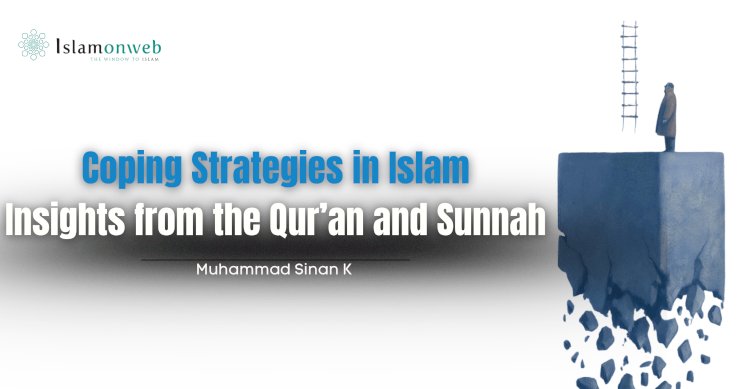


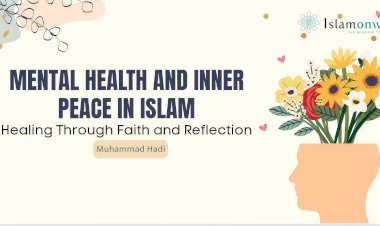
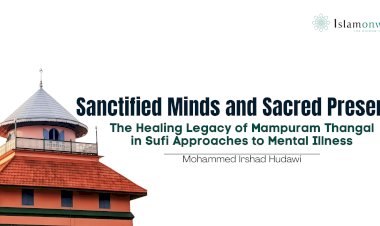

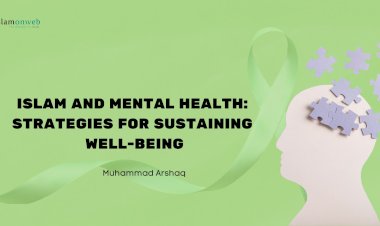
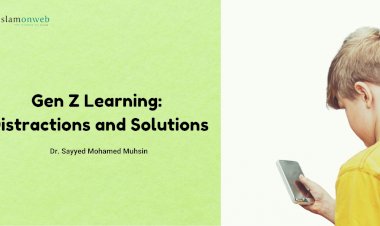















Leave A Comment